1338 Masters Courses in Canada - Find Universities,Deadlines, Eligibility & Fees
Master's in Canada last for one to two years and can be pursued for academic or professional purposes. Canadian Universities have application deadlines between October and January for the MS programme, and admission decisions are made by May.
After earning your Master's degree in Canada, you can choose from a variety of jobs there and earn an average yearly salary of 169,000 CAD. Depending on where you want to study, the costs of each sort of Master's program will differ greatly. Many MS in Canada Scholarships are available to aid you with living expenses and tuition.
Why study Master's in Canada?
Because of its world-class universities, high standard of instruction, and reputation as a hospitable and safe nation, studying for a master's degree in Canada is a dream come true for the majority of students. With an expanding number of well-paying professions in business management, engineering, information technology, and pharmacology, choosing to pursue an MS in Canada keeps growing every year. In Canada, the educational system provides Co-Op Masters so that students can advance their education by gaining real-world experience.
- Eight Canadian universities are listed among the top 200 universities in the world by QS World University Rankings (2023).
- Canada has a friendlier immigration policy than other study-abroad countries. Students can apply for a post-graduation work permit if they want a PR.
- International students can apply for various part-time jobs during their studies to obtain useful work experience and make enough money to at least cover their living expenses.
- In Canada, the cost of tuition ranges from 30,000 to 55,000 CAD. Comparatively cheaper than earning a master's degree in the United States or Australia.
Master's Highlight
A master's degree is a postgraduate academic degree accessible in a variety of fields, including business, education, engineering, humanities, and social sciences, which is awarded by universities or colleges upon completion of a one to two-year program of study.
Duration |
Average Fees |
Masters Type |
General Eligibility |
Exams Required |
12-24 months |
$10,000-$30,000 per year |
Full-time, Part-time |
Bachelor's degree in a related field, minimum GPA, work experience (sometimes) |
GRE, GMAT, or program-specific entrance exam (varies by program) |
Types of Masters in Canada
Canada provides a selection of master's degree programmes in a range of subject areas. The following are some of the most typical master's degree specialities in Canada:
- MA: A master's degree in the humanities, social sciences, or fine arts is known as an MA. It often entails coursework and a thesis or research project.
- MSc: A master's degree in the natural sciences, engineering, or mathematics is known as an MSc. The usual requirements include coursework, lab work, and a research project or thesis.
- MBA: Master of Business Administration strongly emphasizes strategy, management, and leadership. Case studies, coursework, and group projects are frequently included.
These are but a few illustrations of the different master's degrees offered in Canada. Other specialized programmes exist, such as the Master of Fine Arts (MFA), Master of Information (MI), and Master of Architecture (MArch), among others.
Best Universities for Masters in Canada
The student satisfaction rate in terms of employability and quality of life is a primary factor that encourages students to pursue a master's degree in Canada. If you want to pursue a master's degree in Canada, you should review the following table of some of the top universities in Canada offering master's degrees, along with information about their rankings globally, costs, programmes they offer, and deadlines for applying.
University |
World Ranking (QS 2023) |
Average Fees |
Programs Offered |
Admission Deadlines |
Other Information |
34 |
$23,589 CAD per year |
Various, including Arts and Sciences, Business, Engineering, and Law |
Varies by program and department, generally between November and January |
Offers a wide range of scholarships and awards for international students. |
|
47 |
$8,776 to $49,678 CAD per year |
Various, including Arts and Sciences, Business, Engineering, and Medicine |
Varies by program and department, generally between December and January |
Has a strong focus on sustainability and environmental research, with an Institute for Resources, Environment and Sustainability (IRES) and the Centre for Sustainable Food Systems. |
|
31 |
$16,000 to $50,000 CAD per year |
Various, including Arts and Sciences, Business, Engineering, and Law |
Varies by program and department, generally between November and January |
Located in Montreal, a bilingual city with a strong cultural scene. |
|
110 |
$9,000 to $30,000 CAD per year |
Various, including Arts and Sciences, Business, Engineering, and Law |
Varies by program and department, generally between November and January |
Offers over 200 graduate programs, including joint degrees and interdisciplinary programs. |
|
University of Waterloo |
154 |
$7,600 to $43,000 CAD per year |
Various, including Arts and Sciences, Engineering, and Mathematics |
Varies by program and department, generally between November and January |
Known for its strengths in engineering and technology, with a strong focus on entrepreneurship and innovation. |
Curriculum of the Masters in Canada
Depending on the university and the programme, the curriculum for a Master's in Canada varies but often follows a similar framework. Here is a broad description of the Masters in Canada:
- Coursework: Most Master's programmes require students to take a particular number of courses in their field of study, often 6-10 courses that provide a solid foundation in their profession's theoretical and practical components and may involve lectures, seminars, and assignments.
- Research: Many Masters require students to complete a research component, which may involve a thesis or a major research project developing advanced research skills and contributing to the knowledge base in their field of study.
- Electives: Some Master's programmes may also include elective courses allowing students to specialize in a particular study area or explore related fields.
- Professional development: Many Master's programmes also contain professional development components, such as workshops, internships, or industrial placements, to help students build the skills and experience they will need to succeed in their chosen career path.
Eligibility Criteria for the Masters in Canada
The general requirements for a Master's in Canada are as follows:
- A Bachelor's degree from a recognized university or college
- Minimum GPA of 3.0 on a 4.0 scale or its equivalent
- English language proficiency (through standardized tests such as IELTS or TOEFL)
- Letters of recommendation from professors or employers
- Statement of purpose outlining academic and career goals
- Standardized tests (depending on program and field of study)
Admission Requirements for the Masters in Canada
Depending on the university and the program, different qualifications are needed for admission to Master's programmes in Canada. However, the majority of colleges and programmes have certain standard entry standards. Here is a general outline of the prerequisites for Master's admission in Canada:
- Application form: Candidates must complete an application form specific to the school and program they desire to apply to. The application form will normally request personal data, academic background, and questions unique to the programme.
- Official transcripts: Applicants must produce official transcripts from every previous institution they attended for school, including the one where they earned their Bachelor's degree.
- English language proficiency: Applicants who do not speak English as their first language must show proof of their English language ability. This can be accomplished by taking standardized exams like the TOEFL or IELTS.
- Recommendation letters: From instructors or employers who can attest to an applicant's academic or professional qualifications, a recommendation letter is required for many Master's programmes.
- Statement of purpose: The majority of Master's programmes require applicants to submit a statement of purpose detailing their educational and professional objectives as well as the reasons behind their desire to earn a Master's degree.
- Standardized tests: Depending on the program and topic of study, certain Master's programmes may involve standardized tests like the GRE or GMAT.
- Work experience: For some master's programmes, candidates may need to have relevant professional experience related to their area of study.
- Visa: A student visa or study permit is required for international students who want to study in Canada. Depending on the student's nation of origin, different visas are needed.
- Application fee: Applicants must pay an application fee to many colleges and programmes in order to submit their application.
Overall, the criteria for Master's admission in Canada are intended to make sure that candidates have the academic and language abilities needed to succeed in their chosen programme. It is advised that candidates look out for the exact admission requirements of various universities and programmes.
Admission Process for the Masters in Canada
Knowing the admissions requirements for Master's programmes in Canada is useful once you have chosen the universities to which you will submit your MS applications. In Canada, there are three intakes for Master's programmes: fall, spring, and summer. Searching for the Canadian Masters application deadlines is a crucial consideration.
You should prepare your test results and all of your supporting documentation before applying for an MS in Canada because admissions often open one year before the commencement of the course.
In general, the selection of the university course, preparation of the application materials, and application to the chosen universities are the first steps in the admission process for MS in Canada. You must prepare enough cash to demonstrate that you are eligible for a Canada Study Visa since we will start the visa application as soon as we get your admission.
Cost of Studying for the Masters in Canada
Depending on the programme, institution, and location, a Master's degree in Canada can be obtained for various prices. Local students generally pay less in tuition at Canadian universities than foreign students. For international students in Canada, a Master's degree typically costs between CAD 17,000 and CAD 25,000 a year, compared to between CAD 6,000 and CAD 10,000 for domestic students.
However, some elite universities and specialized courses may have much more tuition costs. International students should additionally budget for pre-arrival expenses, including the IELTS exam price, visa application fee, and health insurance, in addition to tuition. Depending on where you are, the IELTS exam prices range from CAD 300 to CAD 350.
Depending on the kind of visa and the applicant's place of origin, overseas students must pay a visa application cost that ranges from CAD 150 to CAD 500. International students must additionally purchase health insurance; the cost varies by the province of study but normally costs between CAD 500 and CAD 800 annually.
Scholarship for the Masters in Canada
Students can apply for various scholarships from academic institutions, the Canadian government, business groups, and other organizations as financial aid, which typically helps students afford their tuition and living expenses in Canada. The table below lists a few of the scholarships accessible to international students studying for a master's degree in Canada:
Scholarship |
Awarded to |
Amount (in CAD) |
Ontario Graduate Scholarship |
Graduate students at universities in Ontario |
10,000- 30,000 |
University of Waterloo Graduate Scholarship |
Graduate students registered full-time in a Master's or Doctoral program at the University of Waterloo |
1,000 |
Graduate Dean’s Entrance Scholarship |
Full-time students enrolled in a thesis-based master’s programs at UBC |
5,000 |
Master's Entrance Scholarship |
Full-time graduate student at UAlberta in the form of a stipend |
17,500 10,000 |
International Entrance Awards |
Students enrolled in an MBA program at McGill University |
Up to 20,000 |
Job Scope for the Masters in Canada
Masters in Canada jobs vary depending on specialization or course. You can work in a variety of areas and businesses. MS graduates in Canada can earn between 40,000 and 100,000 CAD per year. Computer Science Engineering, Electrical Engineering, Civil Engineering, Project Management, and Data Science are some of the most in-demand fields in Canada for graduates.
Job roles |
Average salary |
Electrical Engineer |
75,500 CAD |
Computer Engineer |
82,000 CAD |
Aerospace Engineer |
65,668 CAD |
Business Analytics |
78,000 CAD |
Data Scientist |
90,000 CAD |
Engineer Manager |
94,000 CAD |
Operations Manager |
75,437 CAD |
Software Developer |
103,620 CAD |
- Level of study
- Streams
- Countries
- Cities
- Fees
- Exams Accepted
- Course Duration
- Masters
- Clear All

MBA in Technology, Innovation and Entrepreneurship
International Business University, Canada
DURATION
Online:7 MonthsOn-campus:1 Year 4 MonthsFEES
Online: INR 4,50,000On-campus: CAD 25,875
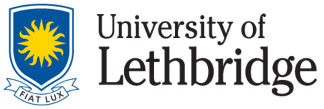
Information Systems (MSc (Mgt))
University of Lethbridge, Canada
DURATION
2 YearsFEES
-EXAMS
-INTAKE SESSION
-
More courses at University of LethbridgeView All
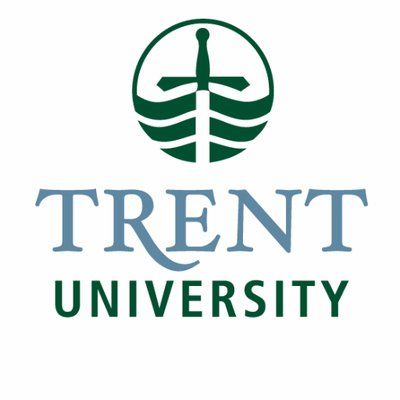
Postgraduate Certificate in Business Communications
Trent University, Canada
DURATION
1 YearFEES
INR 11.59L/yrEXAMS
IELTS-6.5INTAKE SESSION
SEP 2024
More courses at Trent UniversityView All
DURATION
1 YearFEES
INR 11.59L/yrEXAMS
IELTS-6.5
DURATION
1 Year 3 MonthsFEES
INR 11.59L/yrEXAMS
IELTS-6.5
DURATION
8 MonthsFEES
INR 11.59L/yrEXAMS
IELTS-6.5
DURATION
8 MonthsFEES
INR 11.59L/yrEXAMS
IELTS-6.5

Post-Baccalaureate Certificate in Data Analysis
University of the Fraser Valley, Canada
DURATION
1 Year 5 MonthsFEES
INR 14.67L/yrEXAMS
IELTS-6.5INTAKE SESSION
SEP 2024
More courses at University of the Fraser ValleyView All
DURATION
8 MonthsFEES
INR 1.19L/yrEXAMS
IELTS-6.5
DURATION
1 Year 7 MonthsFEES
INR 14.56L/yrEXAMS
IELTS-6.5

Master of Business Administration
University Canada West, Canada
DURATION
Online:11 MonthsOn-campus:1 Year 3 MonthsFEES
Online: INR 4,50,000On-campus: CAD $29,799

Master of Science, Mathematical and Computational Sciences
University of Prince Edward Island, Canada
DURATION
2 YearsFEES
INR 10.75L/yrEXAMS
IELTS-7.0INTAKE SESSION
SEP 2024
More courses at University of Prince Edward IslandView All
DURATION
2 YearsFEES
INR 10.75L/yrEXAMS
IELTS-7.0
DURATION
2 YearsFEES
INR 10.75L/yrEXAMS
IELTS-7.0
DURATION
2 YearsFEES
INR 10.75L/yrEXAMS
IELTS-7.0
DURATION
2 YearsFEES
INR 10.75L/yrEXAMS
IELTS-7.0
DURATION
2 YearsFEES
INR 16.72L/yrEXAMS
IELTS-7.0
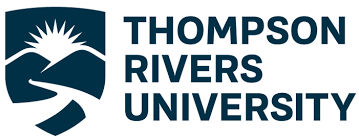
Master of Science in Data Science
Thompson Rivers University, Canada
DURATION
2 YearsFEES
INR 23.35L/yrEXAMS
IELTS-6.5INTAKE SESSION
SEP 2024
More courses at Thompson Rivers UniversityView All
DURATION
2 YearsFEES
INR 22.91L/yrEXAMS
IELTS-6.5
DURATION
2 YearsFEES
INR 31.15L/yrEXAMS
IELTS-7.0
DURATION
1 YearFEES
INR 8.89L/yrEXAMS
IELTS-7.0
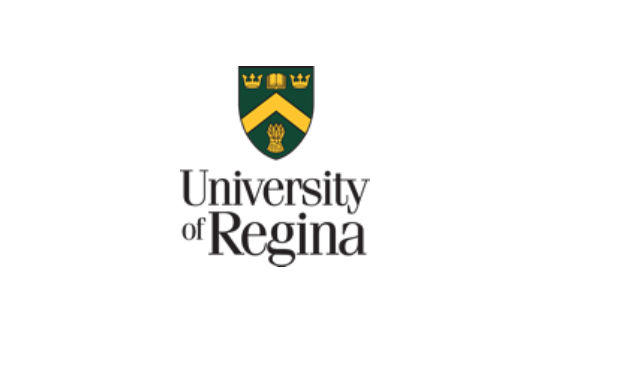
MSc - Computer Science
University of Regina, Canada
DURATION
1 YearFEES
INR 6.79L/yrEXAMS
IELTS-6.5INTAKE SESSION
SEP 2024
More courses at University of ReginaView All
DURATION
1 Year 6 MonthsFEES
INR 14.56L/yrEXAMS
IELTS-6.5
DURATION
6 MonthsFEES
INR 4.86L/yrEXAMS
IELTS-6.5
DURATION
6 MonthsFEES
INR 4.86L/yrEXAMS
IELTS-6.5
DURATION
1 YearFEES
INR 9.71L/yrEXAMS
IELTS-6.5
DURATION
1 YearFEES
INR 9.71L/yrEXAMS
IELTS-6.5
DURATION
1 YearFEES
INR 9.71L/yrEXAMS
IELTS-6.5

Master of Science in Mathematics
Nipissing University, Canada
DURATION
2 YearsFEES
INR 25.47L/yrEXAMS
IELTS-6.5INTAKE SESSION
SEP 2024
More courses at Nipissing UniversityView All

Master of Arts in Education (Educational Foundations)
Mount Saint Vincent University, Canada
DURATION
1 YearFEES
INR 7.50L/yrEXAMS
IELTS-7.0INTAKE SESSION
SEP 2024
More courses at Mount Saint Vincent UniversityView All
DURATION
1 YearFEES
INR 7.50L/yrEXAMS
IELTS-7.0
DURATION
1 YearFEES
INR 7.50L/yrEXAMS
IELTS-7.0
DURATION
1 YearFEES
INR 7.50L/yrEXAMS
IELTS-7.0
DURATION
1 YearFEES
INR 7.50L/yrEXAMS
IELTS-7.0
DURATION
1 YearFEES
INR 7.50L/yrEXAMS
IELTS-7.0
DURATION
1 YearFEES
INR 7.50L/yrEXAMS
IELTS-7.0
DURATION
1 YearFEES
INR 7.50L/yrEXAMS
IELTS-7.0
Recommended articles for you

Master of Organizational Management
Crandall University, Canada
DURATION
1 YearFEES
INR 15.13L/yrEXAMS
IELTS-6.5INTAKE SESSION
SEP 2024
More courses at Crandall UniversityView All
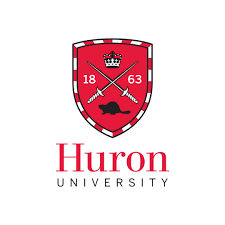
Master of Theological Studies
Huron University College, Canada
DURATION
2 YearsFEES
INR 47.43L/yrEXAMS
IELTS-6.5INTAKE SESSION
SEP 2024
More courses at Huron University CollegeView All
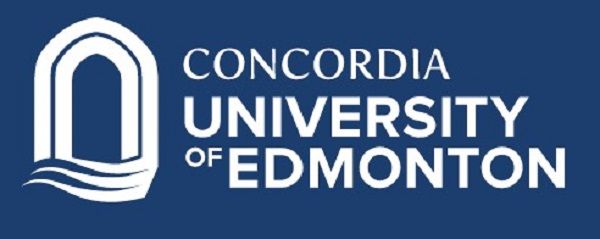
Graduate Diploma in Information Security
Concordia University of Edmonton, Canada
DURATION
1 YearFEES
INR 7.48L/yrEXAMS
IELTS-6.0INTAKE SESSION
AUG 2024
More courses at Concordia University of EdmontonView All
DURATION
1 Year 3 MonthsFEES
INR 9.97L/yrEXAMS
IELTS-6.0
DURATION
2 YearsFEES
INR 14.96L/yrEXAMS
IELTS-6.0
DURATION
2 YearsFEES
INR 14.96L/yrEXAMS
IELTS-6.0
DURATION
1 YearFEES
INR 4.37L/yrEXAMS
IELTS-6.0
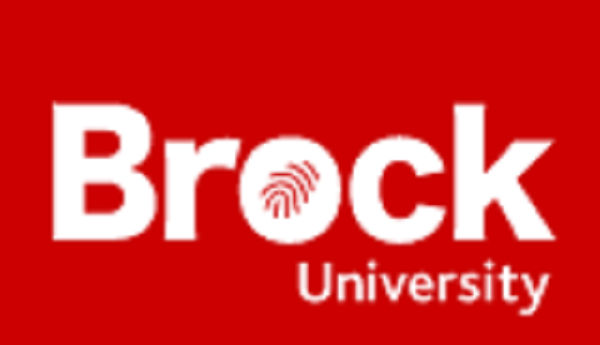
Computer Science (MSc)
Brock University, Canada
DURATION
-FEES
INR 28.51L/yrEXAMS
IELTS-6.5INTAKE SESSION
SEP 2024
More courses at Brock UniversityView All
DURATION
2 YearsFEES
INR 20.73L/yrEXAMS
IELTS-7.5
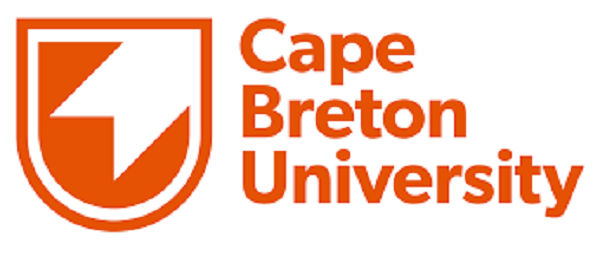
Post-Baccalaureate Diploma in Occupational Health & Safety Management
Cape Breton University, Canada
DURATION
2 YearsFEES
INR 10.67L/yrEXAMS
IELTS-6.5INTAKE SESSION
SEP 2024
More courses at Cape Breton UniversityView All
DURATION
2 YearsFEES
INR 10.67L/yrEXAMS
IELTS-6.5
DURATION
2 YearsFEES
INR 10.67L/yrEXAMS
IELTS-6.5
DURATION
2 YearsFEES
INR 10.67L/yrEXAMS
IELTS-6.5
DURATION
2 YearsFEES
INR 10.67L/yrEXAMS
IELTS-6.5
DURATION
2 YearsFEES
INR 16.39L/yrEXAMS
IELTS-6.5

Master of Social Work
St Thomas University, Canada
DURATION
1 YearFEES
INR 9.93L/yrEXAMS
IELTS-5.0INTAKE SESSION
AUG 2024
TRENDING SEARCHES
- Masters in Psychology in Canada
- Masters in Pharmacy in Canada
- Masters in Architecture in Canada
- Masters of Law in Canada
- Masters in Chemical Engineering in Canada
- Masters in Civil Engineering in Canada
- Masters in Economics in Canada
- Masters in Education in Canada
- Masters in Mechanical Engineering in Canada
- Masters in Computer Science in Canada
- University of Manitoba
- University of Toronto
- University Canada West
- University of Windsor
- University of Alberta
- University of Saskatchewan
- Algoma University
- University of British Columbia
- Trent University
- University of Ottawa
- Thompson Rivers University
- Atmospheric Studies in Canada
- Architecture Courses in Canada
- Astrophysics in Canada
- Arts Courses in Canada
- Architecture and Urban Environment in Canada
- Language in Canada
- Agriculture General Studies in Canada
- Agricultural Business and Operations in Canada
- Accounts and Finance in Canada
- Agriculture and Food Science in Canada
- Area Studies in Canada
- Advertising in Canada
- Animal Science in Canada
- Advanced Computing in Canada
- Archaeology Courses in Canada
- Architectural Engineering in Canada
- Agriculture Services in Canada
- Aerospace Engineering in Canada
- Architecture and Environmental Design in Canada
- Architectural Technology in Canada
- Medical Courses in Canada
- Masters in Marketing in Canada
- Accounting Courses in Canada
- Masters in Supply Chain Management in Canada
- Masters in Engineering Management in Canada
- Physiotherapy Courses in Canada
- Masters in Data Science in Canada
- Business Management Courses in Canada
- Masters in Management in Canada
- Data Science Courses in Canada
- Supply Chain Management Courses in Canada
- Biotechnology Courses in Canada
- Business Analytics Courses in Canada
- Finance Courses in Canada
- Management Courses in Canada
- Bachelors in Dentistry in Canada
- Bachelors in Civil Engineering in Canada
- Bachelors in Chemistry in Canada
- Bachelors in Business in Canada
- Bachelors in Architecture in Canada
- Bachelors in Electrical Engineering in Canada
- Bachelors in Automobile Engineering in Canada
- Bachelors in Design in Canada
- Bachelors in General Science in Canada
- Bachelors in Economics in Canada
- BA in Canada
- Bachelors in Environmental Engineering in Canada
- Bachelors in Dance in Canada
- Bachelors in Computer Science in Canada
- Bachelors in Commerce in Canada
- Bachelors in Education Learning in Canada
- Bachelors in Education in Canada
- Bachelors in Chemical Engineering in Canada
- Bachelors in Archaeology in Canada
- Bachelors in Biomedical Engineering in Canada
- Study in Canada
- Courses in Canada
- Universities in Canada
- Bachelors in Canada
- Masters in Canada
Disclaimer
All information provided on this page is for general use and upGrad Abroad is not responsible for any errors or omissions. The Universities involved in this Program are accredited/recognized in the countries where they are established. Relevant terms and conditions apply.Any action taken upon the information found on this website is strictly at your own risk.
